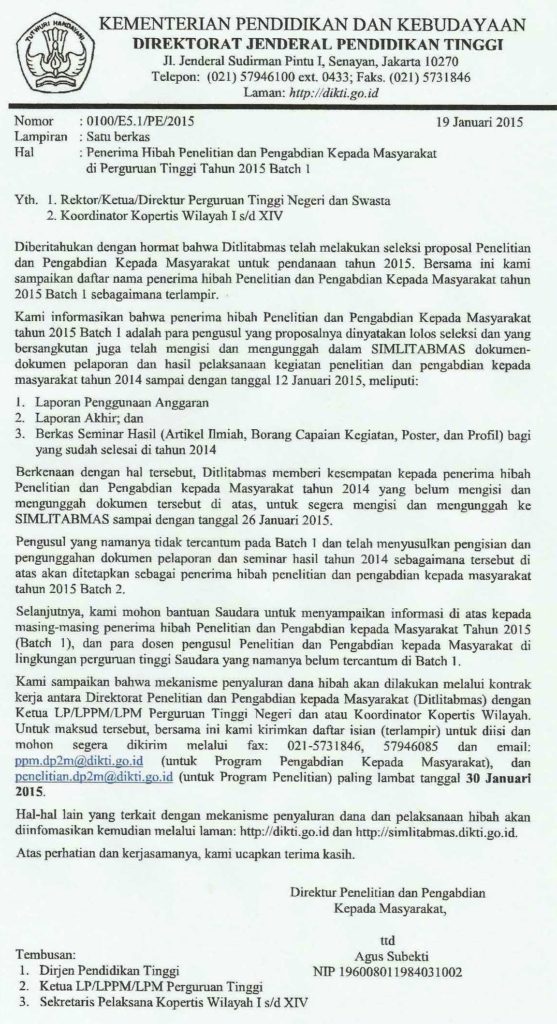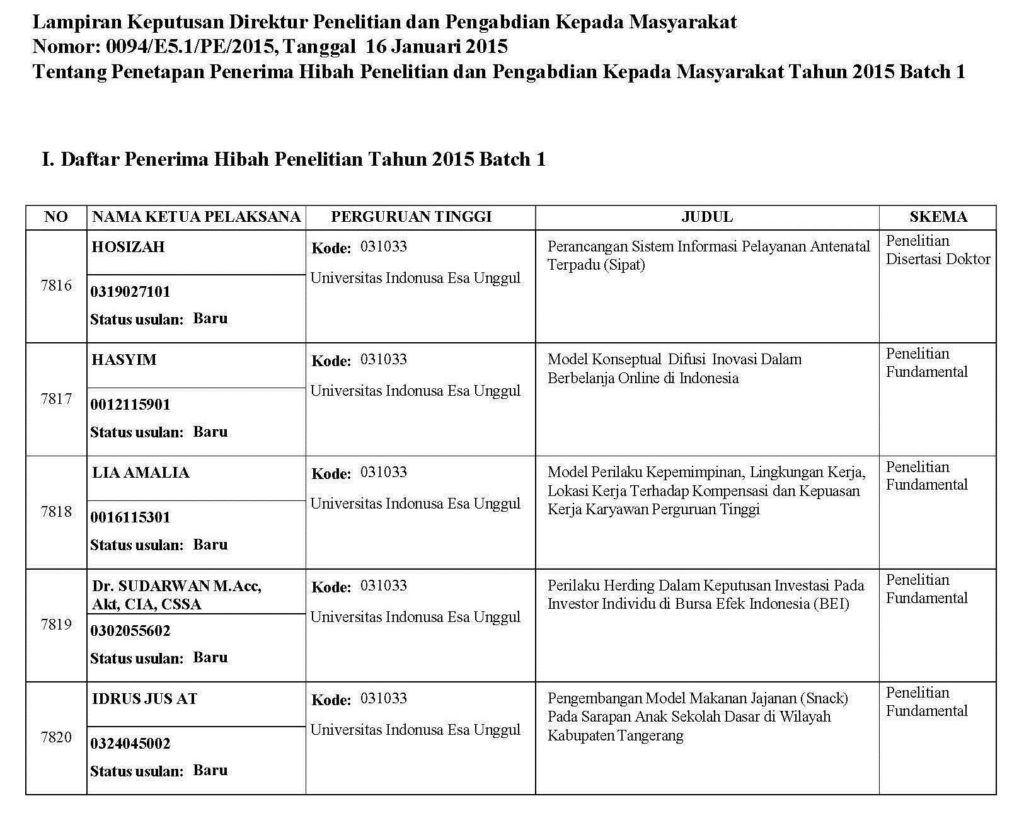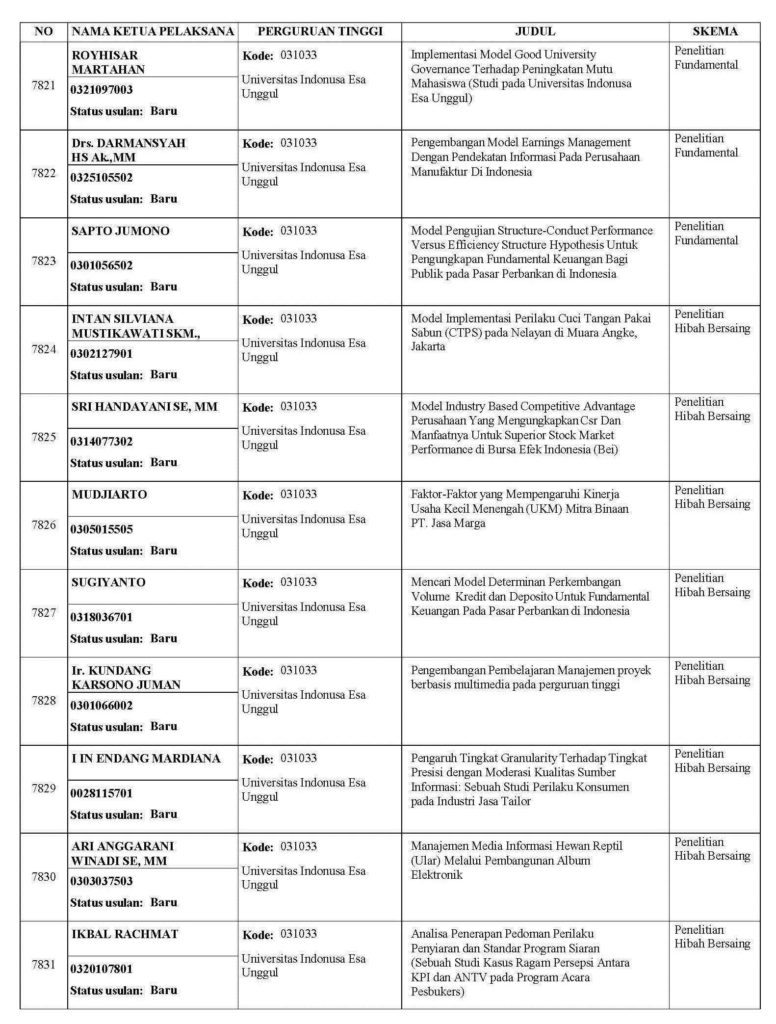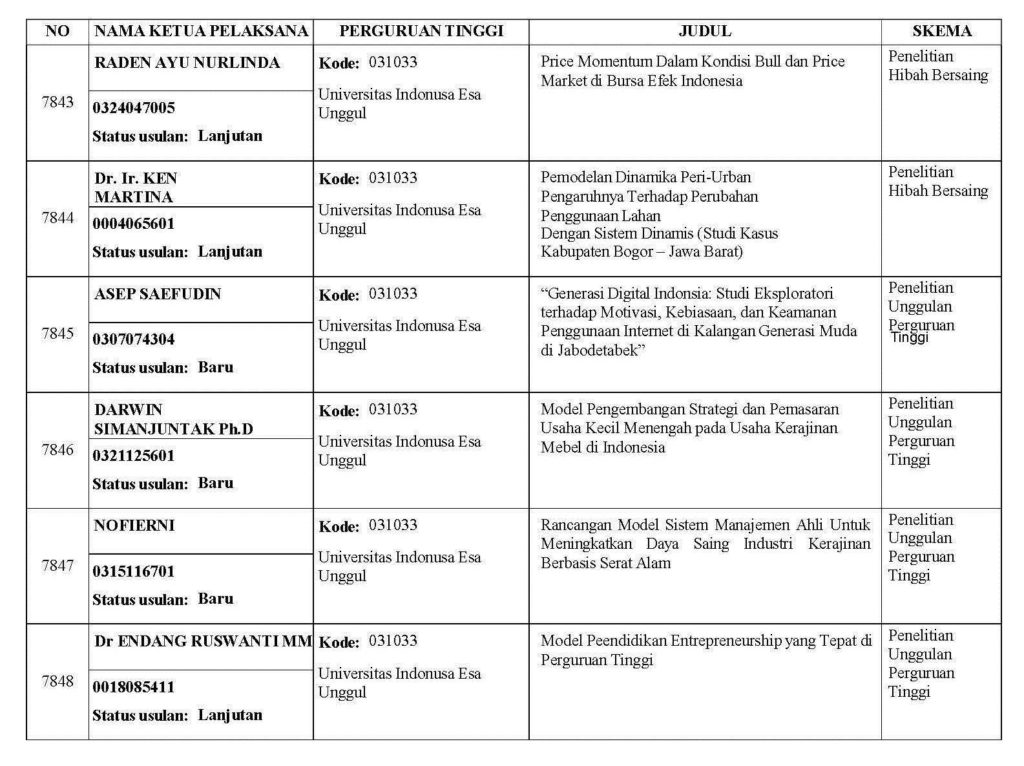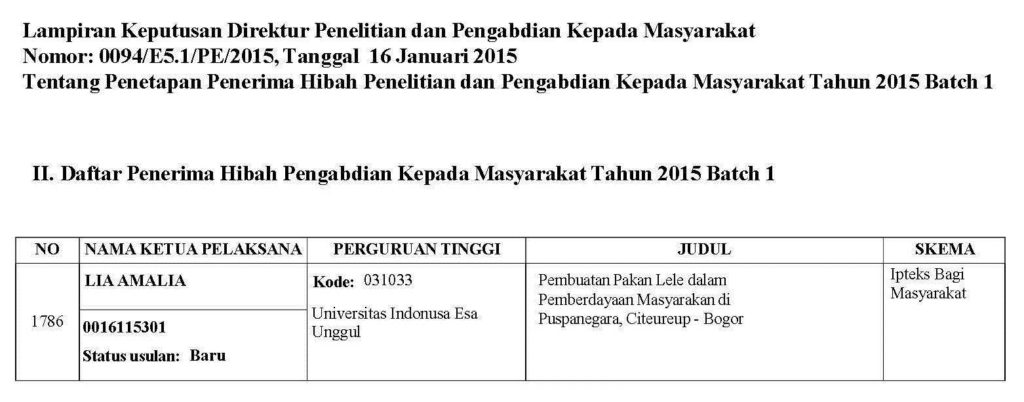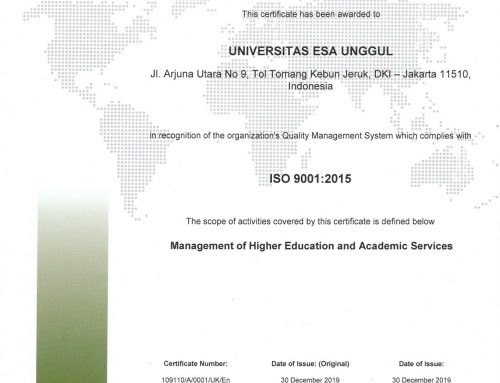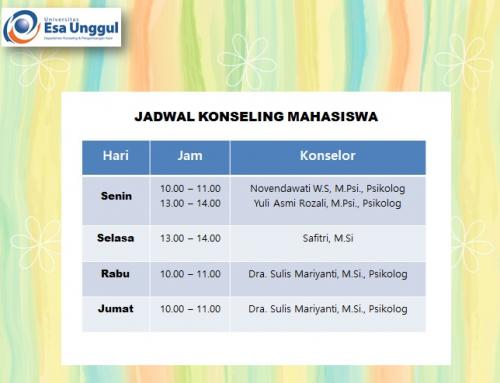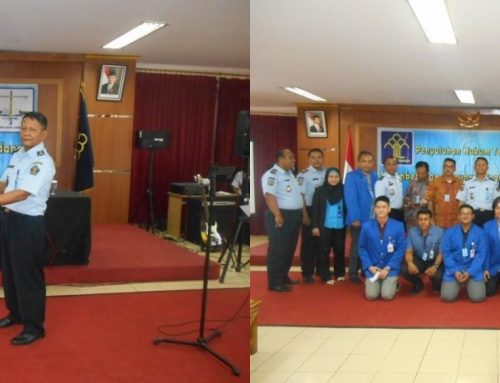[vc_row][vc_column width=”1/2″][vc_accordion][vc_accordion_tab title=”BERITA & INFO LPPM UEU”][vc_column_text]
Selamat Kepada Para Dosen Universitas Esa Unggul Penerima Hibah Penelitian dan Pengabdian Kepada Masyarakat Tahun 2015 Batch 1
Esa Unggul University won the Competition Grant Program Based on 2010 Theme B (PHKI-B) Institution for 6 (six) Study Programs, namely:
- Management
- Accounting
- Psychology
- Informatics Engineering
- Public Health
- Physiotherapy
PHKI-B proposed by Esa Unggul University with the theme “Improving University Quality, Relevance and Access in an effort to improve the competitiveness of graduates” was chosen because it was in line with the strategic activities contained in EUU 2006-2010 Strategic Plan (Renstra) and EUU Vision and Mission.
Download:
Hasil Evaluasi Site Visit PHK Institusi proses seleksi tahun 2010
[/vc_column_text][/vc_accordion_tab][/vc_accordion][/vc_column][vc_column width=”1/2″][vc_accordion][vc_accordion_tab title=”BEASISWA DALAM NEGERI”][vc_column_text]BPPS SCHOLARSHIP – DIKTI
1. BACKGROUND
a. The Legal
The Legal basis of Higher Education is an important sector in the effort to strengthen the nation’s competitiveness. Universities are higher education as mandated in Law Number 20 of 2003 concerning the National Education System (National Education System Law), which produces graduates who are noble, honest, qualified, democratic and able to face challenges and competition between nations. The same thing was stated in the 2003-2010 Higher Education Long Term Strategy (HELTS), that universities must produce graduates who have responsibilities and are able to contribute to the nation’s competitiveness.
Lecturers are an important component in universities. The increasing quality of lecturers will directly improve the quality of higher education. Law Number 14 of 2005 concerning Teachers and Lecturers, especially in item 46 paragraph 2 which states that lecturers are required to have certain academic qualifications, namely: (a) Master degree graduates for undergraduate and diploma programs, and (b). Doctoral graduates for postgraduate programs. Therefore, efforts to improve the academic qualifications of lecturers can be done through the provision of Postgraduate Education Scholarships (BPPS). To achieve these qualifications in a limited time, the BPPS Program needs to be expanded and accelerated.
b. Legal Description
Universities are providers of higher education that have an important role in the competitiveness of the nation. Lecturers as a component of Human Resources (HR) in a university have a central and strategic role. The quality of lecturers will determine the quality of higher education. The quality of university determines the quality of implementing higher education, which in turn affects the competitiveness of the nation. The increasing quality of higher education is expected to improve the competitiveness of the nation. As an educational institution, universities have a big role in enhancing the development of Human Resources (HR) and increasing the nation’s filtering power. Improving the quality of human resources, in this case, lecturers in universities is a strategic effort to improve the quality of higher education. In order for the role to run well, it must be supported by lecturers with superior quality. To get superior quality lecturers, directed and mature planning needs to be well organized. One of the ways to improve the quality of lecturers is through further study at the postgraduate level.
The Directorate of Workforce at the Directorate General of Higher Education has the responsibility to improve the quality of lecturers through further education to postgraduate level as mandated in Law 14 of 2005. Therefore, the Directorate of Higher Education’s Postgraduate Education Scholarship Program is very helpful to improve the quality of higher education so able to improve the competitiveness of the nation.
c. Reason for carrying out the activity
Until 2007 there were 155,466 lecturers spread across 89 public universities (63,500 people) and around 2,850 private universities (91,966 people) throughout Indonesia. In state universities, lecturers with master and doctoral degrees have reached 68%. While in private universities only reached 47%. Overall the number of lecturers who have masters and / or doctoral qualifications is around 52 percent or equivalent to 81,291 people. Meanwhile the targets in the Directorate General of Higher Education’s Strategic plan in 2009 stated that they must reach 70% of PTN and PTS lecturers having master / doctoral qualifications. At the end of 2008, lecturers who had not yet graduated from master / doctoral were 58,934 people. To achieve the 70% target, new innovations need to be carried out from the efforts that have been made.
The Government through the Directorate General of Higher Education continues its efforts to encourage and improve the quality and qualifications of lecturers with postgraduate education through various means, including through (1) scholarships to public and private university lecturers who meet the requirements for continuing education at the postgraduate level, (2) accelerating achievement target number of lecturers with postgraduate education through various innovations in organizing BPPS.
Requirements
Teaching staff / PNS lecturers or foundations that have a NIP (PNS) or a Registration Number (Foundation)
Bachelor or Master degree graduate Lecturers
Pass the file selection and receive it at the Organizing Pps
Proposed by sending institution / Operating Pps
Registered as a new student in Organizing PPs or college students (Ongoing) at least 1 year running for Masters and 2 years running for doctoral
Not receiving another scholarship
Complete information: http://dikti.go.id[/vc_column_text][/vc_accordion_tab][/vc_accordion][/vc_column][/vc_row]




